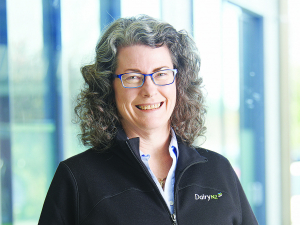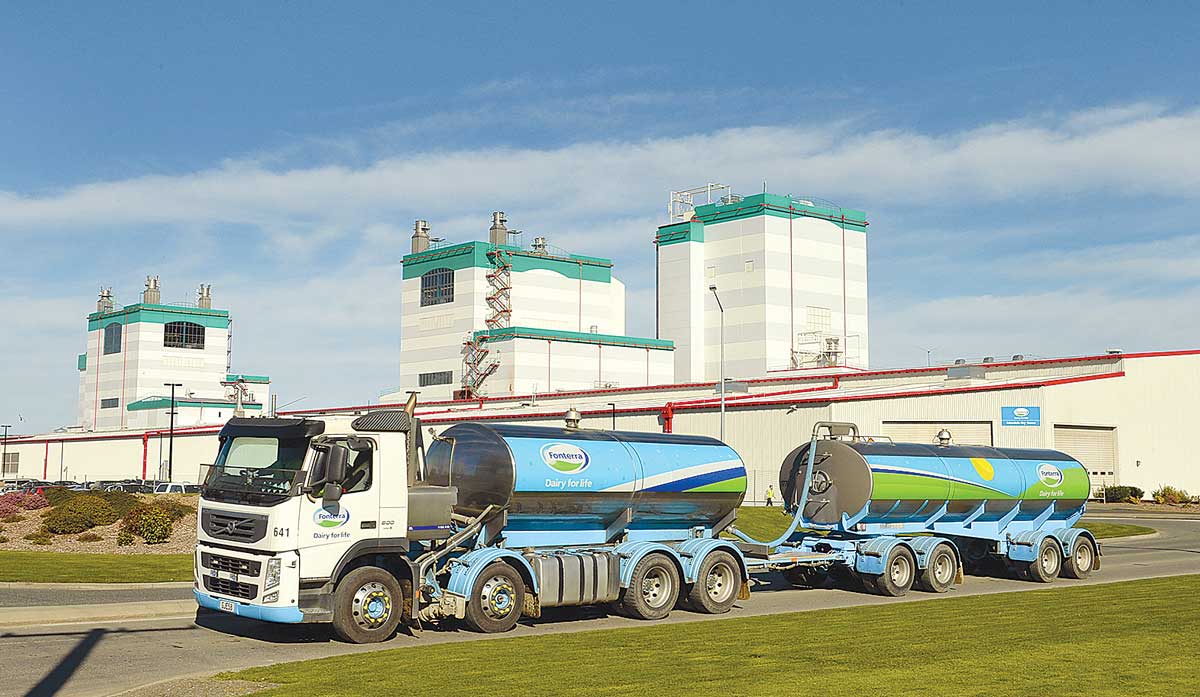Genetics, Efficiency and Performance: How the Burgesses are raising the bar at Te Poi
Bill and Michelle Burgess had an eye-opening realisation when they produced the same with fewer cows.
 Dairy NZ's Sharon Morrell says good grass growth is setting things up for farmers in terms of milk production.
Dairy NZ's Sharon Morrell says good grass growth is setting things up for farmers in terms of milk production.
The dairy industry is humming with strong pasture growth, thanks to a kind winter and a mild spring.
Many farmers are already turning surplus pasture into silage.
DairyNZ acting general manager farm performance Sharon Morrell says the good grass growing conditions are a “get out of jail free card” for many farmers who endured a prolonged drought last season.
“It’s been a good spring so far and winter growth rates were fantastic, comparatively...It has allowed a lot of people to recover much quicker from the drought,” she told Rural News.
Morrell says the good grass growth was setting things up well for farmers in term of milk production.
“Farmers are always thinking that if I can get X amount of milk in the vat before Christmas, the rest of the season is a bonus.
“This is the part that really counts.”
While DairyNZ doesn’t collect figures on milk production, Fonterra says its peak milk – the highest daily collection of the season – was on October 18 when it processed over 80 million litres of milk.
“Last year we processed over 80 million litres on our peak day and we processed about the same this year – all with the extra challenge of significant Covid-19 precautions still in place across our manufacturing sites,” a spokeswoman told Rural News.
She says October is a busy time right across the co-operative, with Fonterra tankers are picking up milk from farms every nine seconds. October milk collection data will be released at the end of this month.
 |
|---|
|
Fonterra says its peak milk was on October 18 when it processed over 80 million litres. |
Despite the good pasture growth on farms, DairyNZ is urging farmers to be ready for a dry summer.
Morrell says NIWA suggests La Niña conditions – warmer than average ocean and air temperatures for New Zealand – are coming.
She says some farmers are setting themselves up by storing away silage and planning extra summer crops like maize.
“Their recent experience with how dry last summer was and how long it extended, there’s probably more proactive thinking about putting as much silage away as they can,” she says.
“Some farmers are planting little bit more maize than they might normally have. Some are also thinking about summer crops.
“With recent experience, it tends to remind everybody to approach things in the best practice way.”
She points out farms were getting dry around the country, but several bouts of heavy rain last week have been a blessing.
However, North Otago and South Canterbury still remain areas of concern.
Morrell says even irrigators are starting to think about how to manage their summers if the current weather persists in these areas.
Her message to farmers is to be actively thinking about setting up for summer.
“Review plans and make decisions early. During the last summer drought, those who were decisive fared much better than those who were hopeful that things would change.”
Legal controls on the movement of fruits and vegetables are now in place in Auckland’s Mt Roskill suburb, says Biosecurity New Zealand Commissioner North Mike Inglis.
Arable growers worried that some weeds in their crops may have developed herbicide resistance can now get the suspected plants tested for free.
Fruit growers and exporters are worried following the discovery of a male Queensland fruit fly in Auckland this week.
Dairy prices have jumped in the overnight Global Dairy Trade (GDT) auction, breaking a five-month negative streak.
Alliance Group chief executive Willie Wiese is leaving the company after three years in the role.
A booklet produced in 2025 by the Rotoiti 15 trust, Department of Conservation and Scion – now part of the Bioeconomy Science Institute – aims to help people identify insect pests and diseases.

OPINION: The release of the Natural Environment Bill and Planning Bill to replace the Resource Management Act is a red-letter day…
OPINION: Federated Farmers has launched a new campaign, swapping ‘The Twelve Days of Christmas’ for ‘The Twelve Pests of Christmas’ to…